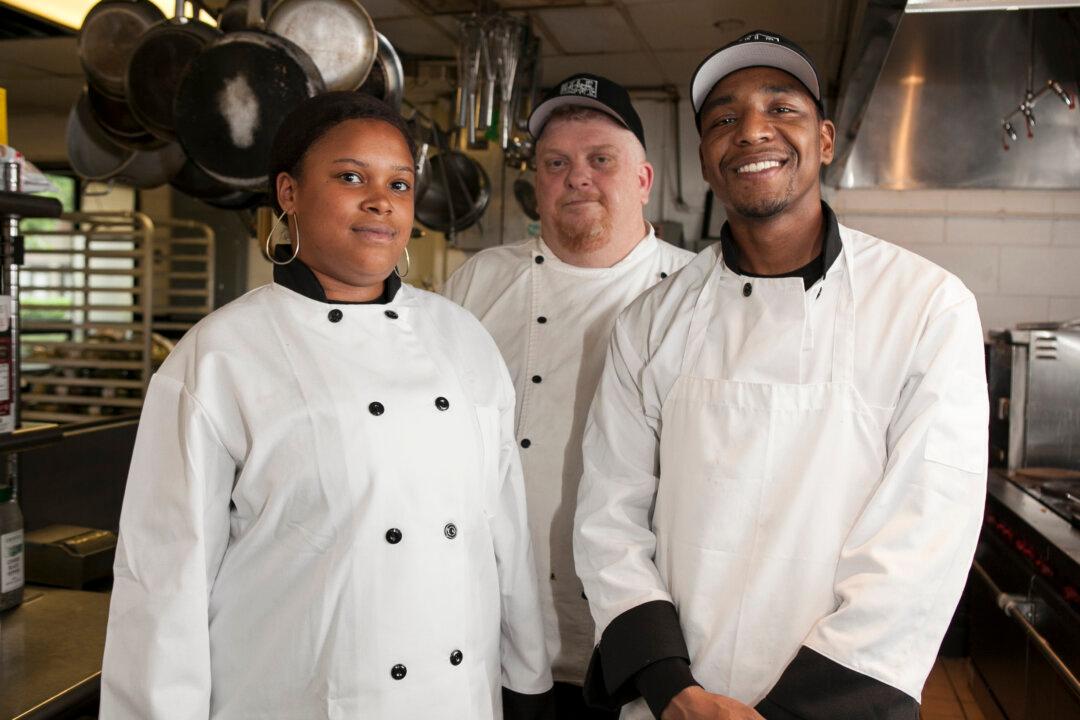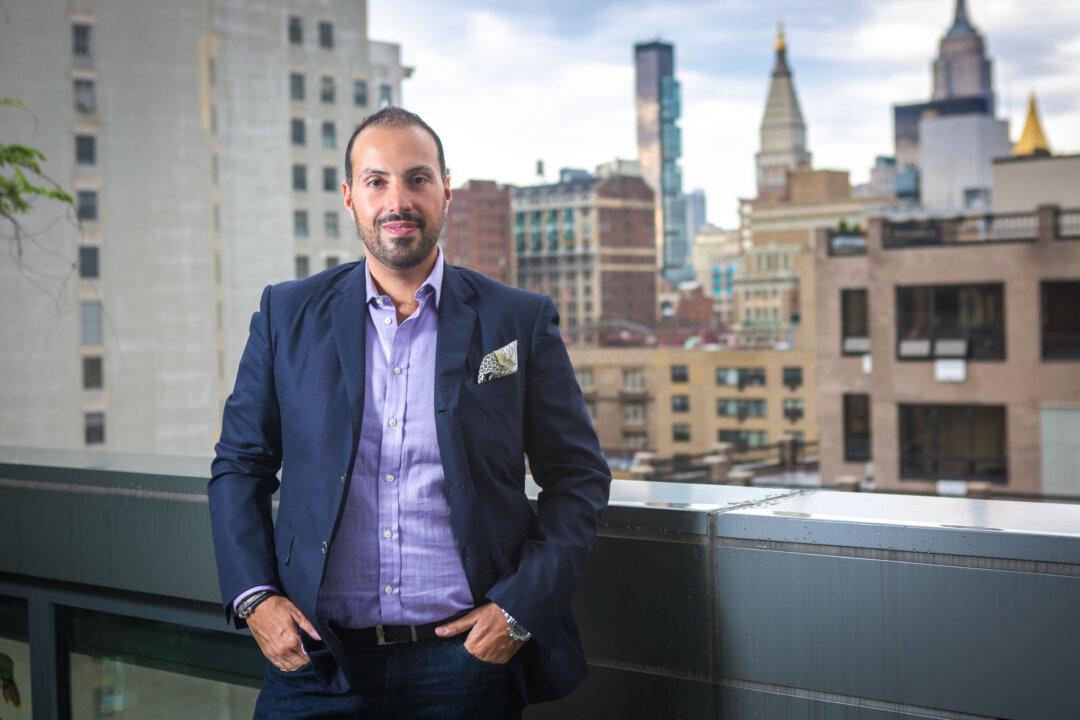NEW YORK—Wards Island, a short bus ride from 125 Street and Lexington in Harlem, is home to two shelters that supply temporary housing for hundreds of the city’s homeless men.
At the southeast corner of the island, 200 men live in four cottages at the HELP Supportive Employment Center. Some of the men have their own rooms, and the rest share with two or three others. Each year about 700 or 800 men pass through the shelter.
Aside from the shelters and a psychiatric hospital, there is not much on the island. Many residents take the M35 bus to Harlem during the day to socialize and run errands, but they tend to hurry back for meal times.
The reason, shelter staffers say, is because the food is so delicious. On any given day residents might be served venison, lobster, shrimp, or boar, accompanied by skillfully presented seasonal vegetables.
Food Handlers Course
Daniel McGuire, a former executive chef for Marriott Hotels who has cooked for three presidents (the two Bushes and Clinton), is keeping a close eye on the shelter’s kitchen.For the last five years, he has overseen the training of students enrolled in the shelter’s eight-week culinary program, which is open to males and females from any of HELP USA’s 23 programs and residences throughout the city.
With his hands-on approach and lots of positive encouragement, McGuire teaches the students how to make meals from scratch, including even bread and pasta.
“We cook to focus on technique. Basically, sautéing, broiling, grilling, steaming, poaching, so they [the students] understand what the technique does for the food and the difference between the techniques,” he said.
Last year the 64 students who took the course received their food handler’s certificate, a chef’s uniform (including the hat and a shirt with their name printed on it), and a set of cooking knives.
“We try to build confidence, real confidence. Industry skills. We are basically taking someone that has hit bottom, and they are on their way up,” McGuire said. “It’s real life experience. They are in the kitchen eight hours a day.”
Organic Urban Garden
Some of the kitchen’s ingredients come from a 10,000-foot urban garden, which was built next to the shelter in partnership with Project Eats in July 2012.The produce is incredibly fresh, so it is much better for the residents, McGuire said. “The vitamins are all in there. That’s what most of these guys are lacking. You can actually get them to eat vegetables now.”
Regional farm manager for Project Eats Andrew Casner, 29, said although the farm is not certified organic, and does not plan to be, it uses organic practices—so no pesticides and herbicides.
“The garden is small scale enough that we can be extremely attentive to every stage of the process,” Casner said.
Last year a juice company donated 30 fruit trees to the garden (apples, cherries, and apricots), and a greenhouse was added to the site.
Casner projects about 12,000 pounds of produce will be harvested this year, including kale, lettuce, cucumbers, peppers, tomatoes, and chamomile flowers.
Project Eats Business Model
Project Eats will distribute about 40 percent of this year’s harvest to the shelter to feed the 200 residents. The remaining produce will be sold to restaurants and through Project Eats’ farmers markets to cover the garden’s operating costs.Project Eats has started more than a dozen urban gardens in the city, some in schools, and now maintains seven in communities in Manhattan and Brooklyn.
Founder and executive director Linda Bryant said three new sites are under development. Two of the new sites are Brooklyn—one in Brownsville, and the other at the Brooklyn Public Library. The third new garden is being built at the other homeless shelter on Wards Island.
Bryant said the new garden at Wards Island would, like the culinary program, offer a qualification to people to train there.
Expanding Meals and Training
Chef McGuire said he wants his kitchen to grow large enough to supply meals to other shelters. “That will be more work for our students.”Katrina Green, 27, from Queens, is about to graduate McGuire’s culinary course. “I already know how to cook. I just wanted to know how to cook better… to learn more things in the kitchen.”
Green takes photos on her phone of almost everything they cook. Last week, McGuire gave her some ingredients to take home and cook so she could demonstrate what she had learned in class to her mom and her one-year-old daughter.
Evan Hill, 28, was in the midst of cutting 20–30 heads of cauliflower when he spoke with Epoch Times.
Hill grew up in Harlem, but now resides in Flatbush, Brooklyn. “I’m around a lot of bad influences. Staying out of trouble is my biggest challenge,” he said.
He has been in and out of shelters recently, but wants to stay positive and get his life on track for his four-year-old daughter.
“When you’ve got kids your life is not your life anymore … You put your daughter first and foremost,” he said.
Hill went back to school, and last December got his GED. “Without a high school diploma here you won’t even get a job at McDonalds,” he said.
He enrolled in the culinary course this year with the intention of getting a kitchen job, in somewhere like Applebee’s.
He praised his teacher: “Chef Dan is incredible. I really love chef Dan. Chefs can be bossy, but he tries not to be.”
Hill has dreams to run his own restaurant in the future and maybe move away from New York.
McGuire said the program has had so many success stories over the last few years, getting people into work and helping restore families. “It’s definitely a morale booster.”






